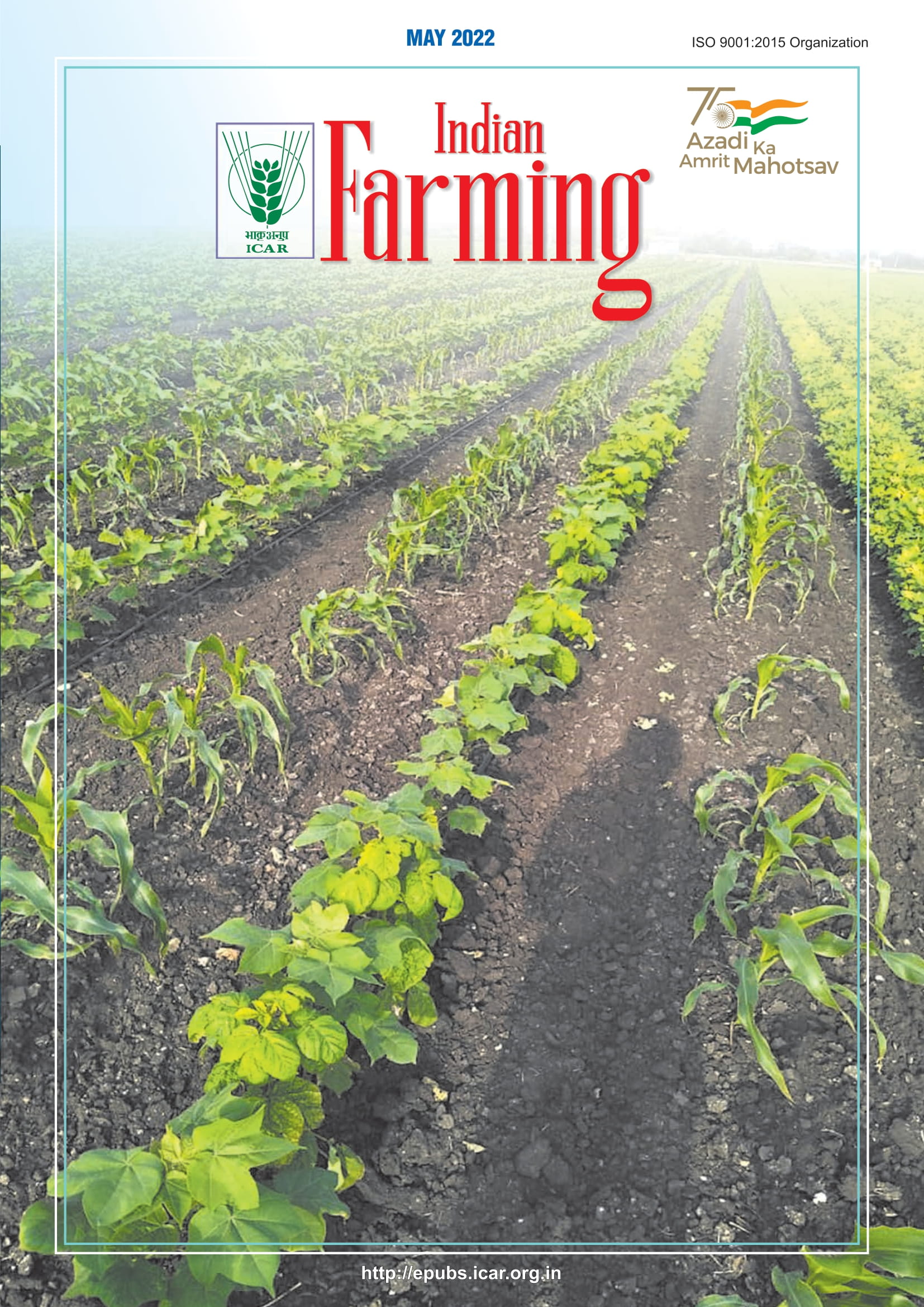Climate-smart agriculture practices helps in reducing the weed menace in rice-wheat system
136 / 101
Abstract
Climate-smart agriculture (CSA) practices are practicing as an alternative to the conventional system in major Agri-food systems of South-Asia. These practices have shown the direct role in improving the farm productivity, profitability, and soil and environmental quality while saving the natural resources (soil, water, energy) and delimiting the environmental footprints. The conservation agriculture based practices have already shown the potential in suppressing the major weeds (P. minor, E. crusgalli, E. colonum, R. dentatus, C. album) up to some extent in rice–wheat cropping system. Present study at farmers’ field suggested the lower weed problem in CSA- based wheat system by planting wheat early (last week of October) with retention of full previous rice crop residue (average 6-8 t ha-1) on soil surface as mulch using combo machine (Combine harvesting with super SMS followed by Happy Seeder wheat sowing) intervention. Following CSA based management instead of the conventional approach of residue burn and intensive tillage not only helps in solving the problem of weed menace but also reduce environmental pollution associated with residue burning. Three year results showed that Phalaris minor, R. dentatus and C. album  weeds were reduced by 57-64, 47-79 and 36-54% ZT in combination with retention of full previous rice crop residue (6-8 t/ha) compared to without residue (0.0 t/ha), respectively. Early sowing and full residue retention reduces the P. minor population by 70-85% in wheat crop. The P. minor density under different CSA-based practices was recorded in decreasing the trend since 2018-19 to 2020-21 because of crop residue mulch suppressed the density of P minor. CSA-based RW system could be a promising alternative for the weed suppression in conveniently managed rice–wheat system in north-west India.Downloads
Download data is not yet available.
Downloads
Submitted
2021-09-15
Published
2022-03-09
Issue
Section
Articles
License
Complete copyright vests with the Indian Council of Agricultural Research, who will have the right to enter into an agreement with any organization in India or abroad engaged in reprography, photocopying, storage and dissemination of information contained in it, and neither author nor his/her legal heirs will have any claims on royalty.
How to Cite
kakraliya, S. kumar, Jat, H., & Sharma, P. (2022). Climate-smart agriculture practices helps in reducing the weed menace in rice-wheat system. Indian Farming, 72(5). https://epubs.icar.org.in/index.php/IndFarm/article/view/115406
